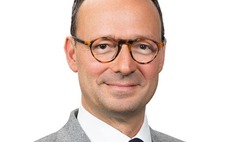
Breaking out of the shell

Captive funds have becoming active in Asia but are they here for the long term?
As private equity increases its presence and influence in the M&A arena, corporate Chief Executive Officers are beginning to take notice. While many of them still don't see private equity as potential partners, quite a few have admired, from afar, the slick and structured style private equity professionals conduct their investment activities and their ability to generate superior returns and fees.
Formerly the domain of investment banks and financial institutions, non-financial groups have been getting in the act. In South Korea PEFs, as they are popularly called, have become a popular tool for corporate development with many of the Chaebols starting their own groups. Chinese and Indian companies and financial institutions have also jumped in the bandwagon.
While many of these groups conduct principal investing, some have even gone as far as to sponsor internal private equity funds, at the same time raising money from third-party investors. However, unlike the pure corporate funds, these captive funds have mixed agendas in pleasing both their corporate parents and their LPs - sometimes resulting in some sort of conflict of interest.
Breaking out
Private equity investors are normally cautious about captive funds. Markus Ableitinger at Capital Dynamics observed that, "Captive funds will always end up in one of two scenarios based on the quality of the team. First, if a team is good and does well, they will eventually spin out one way or another. If not, it will stay the same or go out of business." He added that while captive funds are sometimes important in emerging markets, where funds have to start somewhere, history has proven that independent funds usually have superior returns.
The primary motivator for captive-fund professionals spinning out is usually financial - in the medium-to-long term private equity teams will not want to share their economies with a corporate that provides nothing more than just a name. In many cases, the rewards of professionals in captive and corporate funds do not usually correspond with the actual contribution to the corporate bottom line. Most captive fund managers are not paid any carry and only get a bonus.
"Private equity managers in captive funds don't usually get outsize bonuses even on good years because companies have other considerations such as being ‘fair and equal' to other employees," an industry insider told AVCJ. Usually this springs from the fact that CEOs tend to think, sometimes justified, that their PE professionals lean hard on company resources and would not be able to perform as well if they were independent. In addition, private equity groups tend to be a small division within the company and hence a smaller voice.
A question of independence
There are, however, quite a few exceptions to the trend. Goldman Sachs' legendary Principal Investment Area team has proved to be the best example. Since its inception in 1986, Goldmans PIA, with more than $82 billion of capital, has been on par with the biggest and best private equity firms in the world and remains to have a very well rounded investment team. "Goldman Sachs is a very exceptional group that understands how to incentivize people," says one industry observer.
However, even with GS pay packages, a number of PIA team members and senior Goldman executives have made their way to other groups and several, such as Fang Fanglei, Richard Ong and Fred Hu, have started their own groups. Instead of shunning such individuals, GS has embraced the departing certain professionals by becoming anchor investors in their funds. This has even extended to other corporate-linked groups such as Hony Capital, which still has a substantial link with sponsor Lenovo Group, but largely works independently.
When captive works
Captive funds do have some potential benefits, especially in emerging markets where a well-recognized local brand name opens doors. Firms such IDFC Private Equity, ICICI Venture have been performing well for investors in Indian private equity. "They can be helpful in countries like China, where there is lack of an institutional process," said Kelvin Chan, a Singapore-based Managing Director of Partners Group.
Apart from economics, recently, due to the emergence of Basel III and the Volcker Rule, banks and investments banks have been cutting down on their private equity holdings over the past few years. There is some déjà vu to this as earlier in the decade, listed financial institutions stopped investment due to the lumpy nature of private equity but jumped back in shortly when the markets recovered.
For example, news surfaced in November that Barclays Capital would finally spin off its private equity business, with its PE managers set to acquire the unit under the agreement that Barclays gets a cut of the profit in upcoming years, Businessweek reported at the time. Under the arrangement, the PE team sought approximately $2 billion for a new fund.
Months earlier in July Citigroup sold off $1.1 billion of funds of funds and related PE holdings to Lexington Partners and StepStone Group, and Bank of America spun out Ridgemont Equity Partners, with $1.5 billion under management. On a similar plain, Morgan Stanley spun off its hedge fund manager FrontPoint Partners LLC at in Q4 of 2010.
The final blockbuster move by a financial institution came in December, when HSBC announced that the management team that led HSBC Private Equity Asia completed their own separation, launching Headland Capital Partners Ltd. George Raffini and Marcus Thompson became Managing Partners of the new firm, joined by an additional 14 staff formerly of HSBC.
Advice from the experts
There should be more motivation that just financial for captive fund managers to spin out. "There is something chemical that happens to a manager when they become independent. A sense of freedom and the ability to control your own destiny," said Ableitinger. In terms of spinning out, investors advise managers to focus on their track records and how they can be achieved without the corporate parent behind you.
Partner Group's Chan advised teams to stay as intact as possible and to focus on region/industries that they have been successful at. Convincing existing investors to contribute capital to the fund would be a bit plus. Finally, professionals should eat some humble pie and go for a smaller and more realistic fund size - rebuild your track record first.
Latest News
Asian GPs slow implementation of ESG policies - survey
Asia-based private equity firms are assigning more dedicated resources to environment, social, and governance (ESG) programmes, but policy changes have slowed in the past 12 months, in part due to concerns raised internally and by LPs, according to a...
Singapore fintech start-up LXA gets $10m seed round
New Enterprise Associates (NEA) has led a USD 10m seed round for Singapore’s LXA, a financial technology start-up launched by a former Asia senior executive at The Blackstone Group.
India's InCred announces $60m round, claims unicorn status
Indian non-bank lender InCred Financial Services said it has received INR 5bn (USD 60m) at a valuation of at least USD 1bn from unnamed investors including “a global private equity fund.”
Insight leads $50m round for Australia's Roller
Insight Partners has led a USD 50m round for Australia’s Roller, a venue management software provider specializing in family fun parks.







